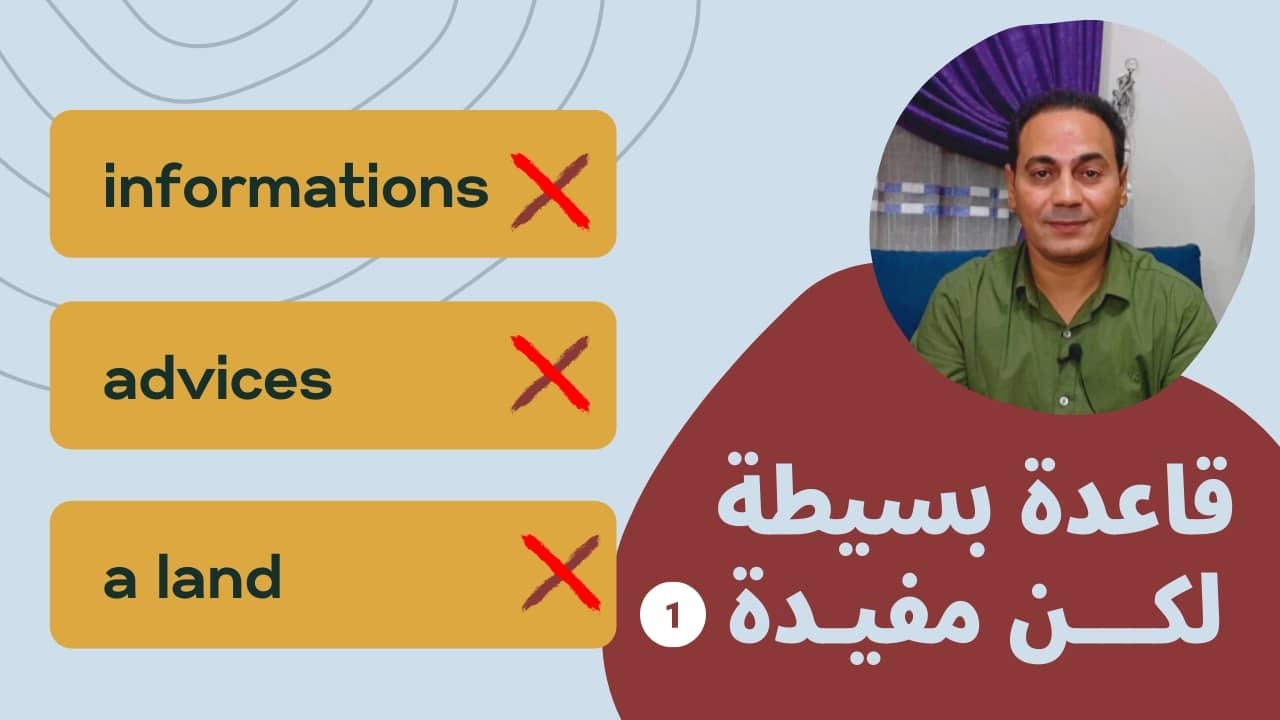شرح زمن المضارع التام The Present Perfect Tense
يستخدم المضارع التام The Present Perfect Tense للتعبير عن فعل بدأ حدوثه في الماضي وتم الانتهاء منه تواً، كأن تقول مثلاً بالعربية: لقد أنهيت الواجب المدرسي الآن، وصلت البيت تواً، أو كأن تقول بالعامية: الحين أنهيت الواجب المدرسي، هسا واصل البيت، لسه يا دوب واصل المكتب.
زمن المضارع التام The Present Perfect Tense
أولاً: صياغته:
have, has + past participle
وتصريف فعل الملكية (to have) مع الضمائر الشخصية هو كالتالي:
I have
He has
She has
It has
We have
They have
You have
ثانياً: استخداماته:
1- يعبر عن حدث وقع في الماضي (مع عدم ذكر الوقت) ولازالت تأثيراته واضحة حتى الآن مثل:
I have visited Britain, so I have a good idea about it.
He has already done his homework, so he is free now.
I have eaten three ice creams, so I have a throe throat.
He has already typed three letters.
We have never drunk alcohol.
I have lost my money. “it means that I have no money now”
2- يستخدم لحدث بدأ في الماضي وينتهي الآن أو انتهى تواً مثل:
I have not seen you for ages, but I see you now.
I have just finished my work.
The students have worked very well this term.
He has been absent from the school for many days, but he is here now.
I have never ridden a bike, but I do now.
He has just finished his work.
3- يعبر عن حدث بدأ في الماضي ومازال مستمراً حتى الآن مثل:
He has been in England for two years. “it means that he is still there”
I have smoked since I graduated. “it means that I still smoke”
4- حدث تم منذ وقت قريب جداً (يستخدم مع since, for) مثل:
She has been in Cairo her brother left England.
يستخدم زمن المضارع التام غالباً مع الكلمات التالية:
Since, for, just, yet, already, lately, recently, so far, up to now, never, ever, this week, this month, this season, this year, this century…
Have you ever seen the pyramids?
I have recently bought a car.
She has lately read a new novel.
استخدامات (Since):
Since last week, I have not gone out.
في الجملة السابقة هناك فعل واحد مع “Since” لذلك يأتي هذا الفعل في زمن المضارع التام.
I have not spoken to him since he insulted me.
في الجملة السابقة هناك فعلين مع “Since” لذلك يأتي الفعل الذي يليها مباشرة في زمن الماضي البسيط ويأتي الفعل الآخر في زمن المضارع التام.
الفارق بين “Since” و “For”:
She has been out since 11 o’clock.
She has been out for two hours.
تعبر “since” عن نقطة في الزمن (a point in time) وتعني (منذ تلك النقطة الزمنية حتى وقت الكلام)، أي أنها تحدد نقطة بداية الفعل مثل:
since yesterday, since last week, since June, since 1990, since he came, then, since 7 o’clock…
أما “for” فتعبر عن فترة زمنية (a period of time) مثلما نقول:
for an hour, for a week, for a long time, for a short time, for a while, for ages, for years, for months, for centuries…
ملحوظة:
يستخدم زمن المضارع التام مع الروابط التالية ليدل على المستقبل:
after, before, when, as soon as, till, until
As soon as I have finished my work, I will go back home.
After I have learnt driving, I will buy a car.
ثالثاً: تمارين:
تمرين رقم 1:
صحح الفعل بين القوسين:
1. It is still dark because the sun not (rise) yet.
2. He (forgot) English since he (leave) England.
3. He (make) much progress since April.
4. Listen! I (hear) knocking at the door.
5. The plane that you (look) at now just (take) off for London.
6. Our village not (be) supplied with pure water yet.
7. My son not (start) work yet. He (be) still in the university. He (be) in it for three years.
8. I am sorry I not (write) for such a long time, but I (be) very busy lately.
9. How long you (be) here?
10. We (not meet) her for several months.
تمرين رقم 2:
ضع “since” أو “for” في مكانها المحدد:
1. She has been ill ….. two weeks.
2. I have not paid him the salary ……. June.
3. I have not studied my lessons …… the last week.
4. He has rung up three times …… lunch time.
5. I have not seen him …… he joined the army.
6. ……. their arrival, I have not met them.
7. I have not driven a car ……. my last accident.
8. It has rained …….. two hours.
9. I have not heard from them …….. 1998.
10. He has been absent from work ……… last month.
11. I have not seen him …….. years. I wonder where he is.
12. I have known that …….. a long time.
13. He has lived in Tanta ……… 1990.
14. That tree has been there …… 200 years.
رابعاً: حلول التمارين:
حل تمرين رقم 1:
1. It is still dark because the sun has not risen yet.
2. He has forgotten English since he left England.
3. He has made much progress since April.
4. Listen! I have heard knocking at the door.
5. The plane that you are looking at now has just taken off for London.
6. Our village has not been supplied with pure water yet.
7. My son has not started work yet. He is still in the university. He has been in it for three years.
8. I am sorry I have not written for such a long time, but I have been very busy lately.
9. How long have you been here?
10. We have not met her for several months.
حل تمرين رقم 2:
1. She has been ill for two weeks.
2. I have not paid him the salary since June.
3. I have not studied my lessons since the last week.
4. He has rung up three times since lunch time.
5. I have not seen him since he joined the army.
6. Since their arrival, I have not met them.
7. I have not driven a car since my last accident.
8. It has rained for two hours.
9. I have not heard from them since 1998.
10. He has been absent from work since last month.
11. I have not seen him for years. I wonder where he is.
12. I have known that for a long time.
13. He has lived in Tanta since 1990.
14. That tree has been there for 200 years.









اشكركم علي هذا المجهود الرائع
الله يفرج همك … استفدت من الدرس
شكرا لك
تقبل مروري
في الجملة السابقة هناك فعلين مع “Since” لذلك يأتي الفعل الذي يليها مباشرة في زمن الماضي البسيط ويأتي الفعل الآخر في زمن المضارع التام.